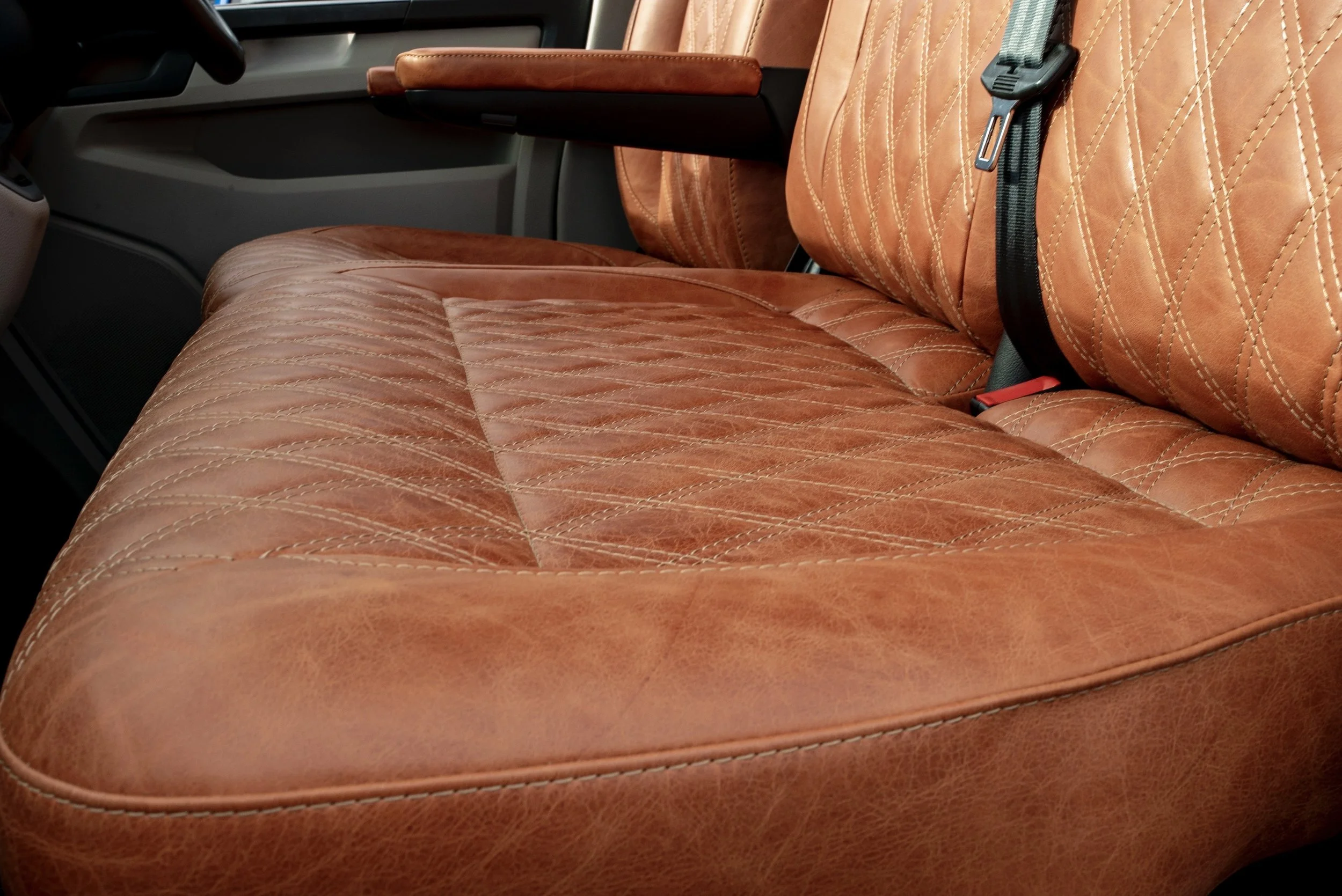How to Care for Leather Seats
Keep Your Interior Looking Timeless
Leather seats, with their rich textures and unmistakable character, play a big part in the driving experience. But over time, without the right care, leather can dry out, crack, fade, or lose its natural feel.
At Oreham Vehicles Ltd, we’ve reupholstered classic car interiors across West Sussex and beyond, and we know how crucial it is to maintain your leather the right way.
Here’s our expert guide to keeping your classic car leather seats in top condition.
1. Regular Cleaning—Without Overdoing It
Use a soft microfiber cloth to dust seats weekly and prevent grit from damaging the surface. For deeper cleans:
Use a pH-balanced leather cleaner (never household soaps)
Apply with a soft brush or cloth
Gently wipe away residue with a clean, dry towel
Avoid soaking the leather—excess moisture can damage both the leather and the stitching.
2. Condition the Leather
Conditioning helps prevent cracks, drying, and fading. Every 3–6 months, apply a quality leather conditioner:
Use sparingly—less is more
Work it in evenly with a soft cloth
Let it absorb, then buff off any excess
Look for products that are free from silicones, waxes or petroleum, which can clog pores and make the surface sticky or shiny.
3. Protect from Sunlight and Heat
UV rays are one of leather’s biggest enemies. Prolonged exposure can cause fading, stiffness, and cracking.
Use a windscreen sunshade when parked outdoors
If possible, store your car in a garage or under a car cover
Apply a UV-protective leather treatment for extra protection
4. Avoid Sharp Objects and Stress Points
Watch for:
Rivets on jeans
Keys in back pockets
Pets’ claws or heavy items placed on the seats
These can leave marks, tears, or impressions in classic leather that may be difficult to repair.
5. Tackle Spills Immediately
Accidents happen. If a spill occurs:
Blot it immediately with a clean, dry cloth (never rub)
Use a leather-safe cleaner if needed
Let the area air-dry—avoid heat guns or hairdryers
The sooner you act, the less likely it will stain or warp the surface.
6. Know When to Restore or Retrim
If your leather seats are already heavily worn, dry, or cracked, cleaning may not be enough. In some cases, a partial or full retrim may be the best option to restore the comfort and appearance of your interior.
At Oreham Vehicles Ltd, we offer classic car reupholstery services using high-quality leathers and period-correct stitching styles to match your original interior—or reimagine it.
Final Thoughts
Looking after your classic car’s leather seats isn’t difficult—it just takes consistency and the right products. With proper care, they’ll continue to add comfort, style, and value to your vehicle for decades to come.
Need Help Restoring Your Interior?
If your classic car leather is showing signs of wear, we’re here to help.
Contact Oreham Vehicles Ltd in Henfield, West Sussex, for professional leather reupholstery and interior restoration.

